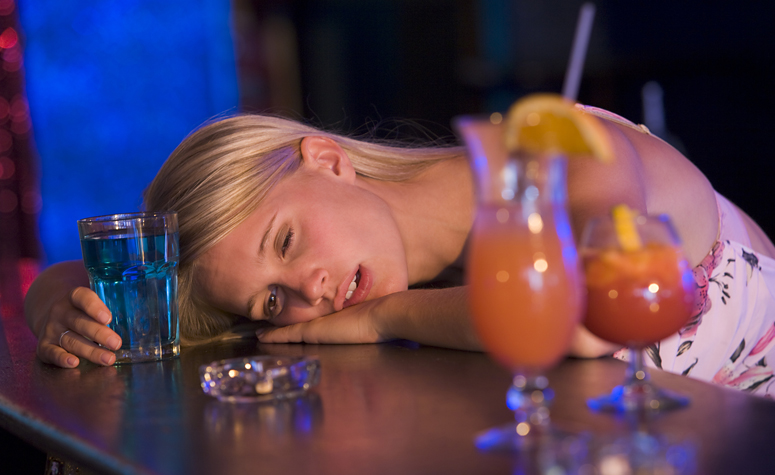Understanding Binge Drinking
Consuming excessive amounts of alcohol over a short period is commonly known as ‘binge’ drinking. As harmful as this practice is, most people don’t have a clear understanding of what exactly it entails. That’s why this article will clarify what binge drinking is and its consequences. In addition, it’ll shed light on how you can protect your health when enjoying alcohol.
What Is Binge Drinking?
Binge drinking involves excessive drinking during a short time period, as defined by the NHS. It often occurs when people begin drinking with the goal of getting intoxicated. After all, this intention will more likely than not lead one to intake large amounts of alcohol over a brief period.
But let’s be more precise. How much do you need to drink for it to be binge drinking? According to the alcohol strategy proposed by the UK government, men are binge drinking whenever they intake over eight alcohol units within one day. For women, the number of units is six. To paint a clearer picture, this roughly translates to:
- Consumption of 3‒4 pints of beer at 4.5% alcohol content
- Drinking 3‒4 glasses of 175ml wine with 13% alcohol
- Having 6‒8 shots of 25ml spirits at 40% alcohol content
As statistics from 2017 suggest, over one in four adults engaged in binge drinking during their most excessive drinking session of the year.

Why do I binge drink alcohol?
Generally speaking, people take part in binge drinking due to a variety of reasons, including the following:- Influence of social or societal expectations
- Anxiety or discomfort in social situations
- Trying to numb negative emotions
- Desire to lower inhibitions
- Attempting to escape stress, anxiety, or poor mood
For many people, binge drinking is a way to deal with negative feelings and improve their mood. But, it is only a temporary remedy, and it doesn’t help them effectively resolve these underlying subconscious emotions. Instead, it only keeps them at bay while the person is under the influence of alcohol.

Fast Access to Residential Treatment
We are currently able to offer fast access to private inpatient treatment.
Please call us today and speak to one of our expert advisors.
Call today in confidence: 0800 0148 970
Is binge drinking alcoholism
If you’re wondering whether binge drinking qualifies as alcohol addiction, there’s no clear-cut answer to this question. Nevertheless, people who often engage in this behaviour might indeed be suffering from alcohol dependency, and there are a number of symptoms that can suggest how serious the issue potentially is. Here are the usual signs of alcoholism to pay attention to:- Failing to take care of everyday responsibilities due to drinking
- Persistent drinking despite the harmful effects it has on you and others
- Lack of control when drinking, often surpassing intended limits
- Using drinking as an unproductive coping method for dealing with
memories, thoughts, or emotions - Suffering lasting health issues due to your alcohol use

Effects of binge drinking
Without a doubt, binge drinking has harmful effects on both mental and physical well-being. While some of these will affect you on a short-term basis, others will have a long-lasting impact on your body and mind.
Short-term
Binge drinking makes you more susceptible to a large number of health issues. Notably, there’s a threat of alcohol poisoning that’s damaging to your overall well-being. Besides, heavy drinking often causes memory loss, known as a blackout, where the person can’t recall what happened while drinking after becoming sober. Other short-term risks include reduced vision, difficulty focusing, and poor reaction times.
Speaking of psychological effects, alcohol is a depressant. As such, it can exacerbate your negative emotions and worsen your mood. Finally, drinking causes a mix of anxiety and hangover, known as hangxiety.
Long-term
Regular binge drinking can also contribute to long-term health issues like liver damage and hypertension in the long run. Even worse, it can lead to different cancer types and brain damage over time.
Psychological effects are as serious as the physical ones. Namely, roughly 60% of those who seek alcohol rehabilitation also need mental health therapy. However, this isn’t surprising, given the strong link between depression and alcoholism.

Though no one can go back and make a
brand-new start, anyone can start from
now and make a brand-new ending
How to Stop Binge Drinking
Ultimately, drinking with the intention of getting drunk is not only dangerous. It can quickly turn into a habit. As such, it can have detrimental consequences on your overall health and well-being. For that reason, it’s important to understand the risk you’re exposing yourself to when you’re engaging in it.
Although quitting alcohol is not an easy feat, it’s by no means impossible. Below, we’ll share the steps to take if you wish to abandon this harmful and dangerous habit.
Have a strategy for cutting down
Again, cutting down on your alcohol intake isn’t easy. Still, if you arm yourself with the right strategy and a well-defined plan, a healthier lifestyle is within your reach. Below are several things you can do whenever you feel like another drinking binge is approaching:
- Establish your goals
Setting goals can help boost your motivation and self-control. So, by establishing a clear target before going out, you’ll be far less likely to overdrink.
- Keep a log of your drinking habit
Keep a record of your drinking behaviour, including when, where, and why you’re having excessive amounts of alcohol. With time, you’ll likely become able to recognise recurring patterns regarding your habits and emotions. And once you can identify why you’re drinking, it’ll be easier to put a stop to it.
- Plan your exit
When attending an event with a lot of alcohol, you need to be able to walk away before your drinking reaches a critical point. With that in mind, consider arranging a taxi ride or another way to get home in advance.
- Focus on non-drinking activities
Is alcohol a key element at most of your social gatherings? If so, you can shift away from these and plan activities that are unrelated to drinking.
Visit your GP
Consider seeing your GP and sharing your concerns with them. Most likely, they’ll offer relevant advice and guidance on how you can curb your binge drinking. In addition to that, they might refer you to support groups and suggest other helpful resources.
Now, if you feel embarrassed and the thought of opening up about your drinking behaviour intimidates you, it’s understandable. Nevertheless, your GP can provide you with invaluable support, so it’s essential that you reach out and accept their help.

Find a support group
Even if you feel alone, know that there are many people facing similar challenges. So consider joining a local support group like Alcoholics Anonymous (AA). By listening to other people’s stories and sharing your own, you’ll find strength and gain valuable insights. Remember, reaching out for support and opening up is an important step towards a healthier life.Seek specialist treatment
With skilled and compassionate support, you can reclaim control over your life and habits. Fortunately, there are many specialist treatments for alcohol addiction to choose from. These will help you make a positive change and commence your journey towards healing. So, if binge drinking is taking a toll on you and those around you, the right treatment will help you take a new, healthier direction.
Generally, most treatments include the following:
- Detox
A medically assisted detox will help you stop drinking and eliminate addictive substances from your body in safe environment. Going through this process will prepare you for the next step.
- Inpatient alcohol dependency treatment
You’ll typically stay at a rehab facility for 28 days on an inpatient basis. During this time, you’ll undergo therapy, attend support group meetings, and join wellness activities designed to aid your recovery process.
- Alcohol addiction therapy
Individual and group therapy will help you deal with the root cause of your binge drinking. With increased self-awareness, you’ll be able to let go of harmful habits.
- Aftercare
Once you complete your therapy, you’ll still have access to care and support groups that’ll help you manage your triggers and resist temptations. They’ll aid you in staying on the right track after you return to your day-to-day activities.

FREE Alcohol Addiction Assessment
If you or a loved one are struggling with alcohol addiction, we understand the challenges you’re facing and we’re here to offer compassionate help.
Our highly trained advisers are available to speak to you right away, simply call 0808 252 3379 today.
We can discuss your concerns in complete confidence, explore the options for treatment, and help you to understand what will work best for you.
We’ll also help you to book your free alcohol addiction assessment there and then, with appointments usually available within only a few days.
We understand that taking the first step can be the most difficult, but we’re here to support – with no pressure or judgement.
Professional and compassionate help is just a phone call or click away.




